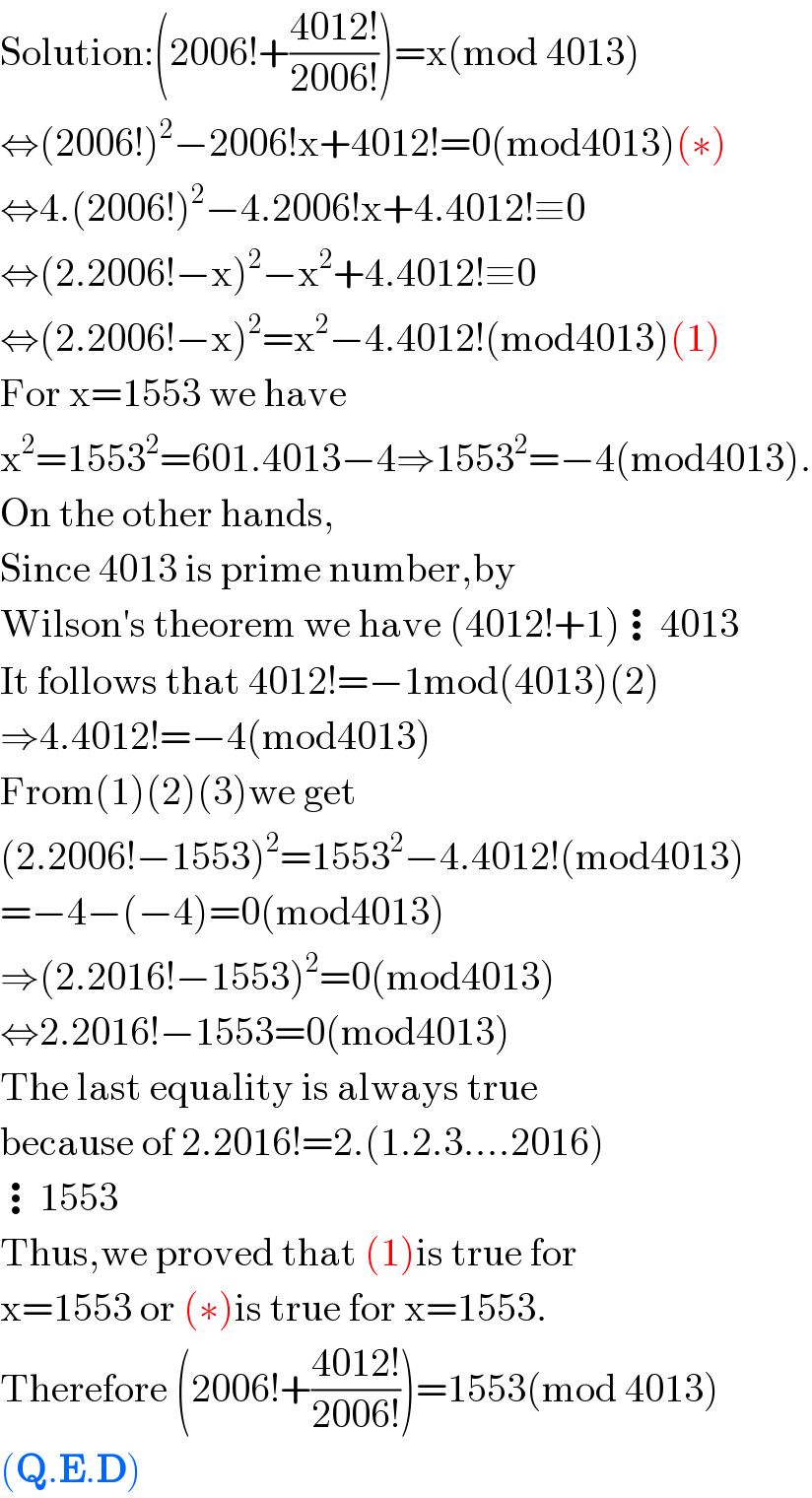
Question and Answers Forum
Question Number 113578 by Algoritm last updated on 14/Sep/20

Commented by Algoritm last updated on 14/Sep/20

Commented by Algoritm last updated on 14/Sep/20

Answered by 1549442205PVT last updated on 14/Sep/20

Commented by Algoritm last updated on 14/Sep/20

Commented by Algoritm last updated on 14/Sep/20

Commented by 1549442205PVT last updated on 14/Sep/20

Commented by Algoritm last updated on 14/Sep/20

Commented by 1549442205PVT last updated on 15/Sep/20
![2.2006!−1553≡0 ⇔(2.2006!)^2 ≡1553^2 ⇔4.2006!^2 ≡−4 ⇔2006!^2 ≡−1⇔(2006!)^2 +1=0(mod4013) ⇔[2006!^2 +1]⋮4013](Q113799.png)
Commented by Algoritm last updated on 16/Sep/20

Commented by Algoritm last updated on 16/Sep/20

Commented by 1549442205PVT last updated on 19/Sep/20

